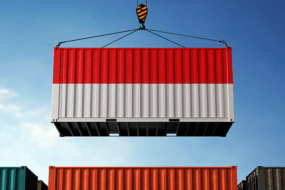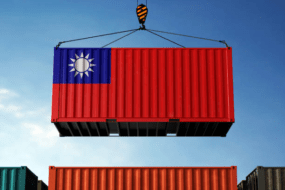- Home
- Trade News
- Iphone 14 productions shifting ...

Apple has been working with suppliers to ramp up manufacturing in India
The first iPhone 14s from the country are expected to be finished in late October or November, following the initial September release. Bloomberg News reported on Tuesday that Apple plans to begin manufacturing the iPhone 14 in India about two months after its release outside of China, reducing the gap from the typical six to nine months for previous launches.
According to Bloomberg, the company has been working with suppliers to ramp up manufacturing in India, and the first iPhone 14s from the country are expected to be completed in late October or November, following the initial September release. According to Foxconn, Apple’s Taiwan-based supplier, the process of shipping items from China and assembling the iPhone 14 at its plant outside Chennai has been studied.
According to the report, the US tech giant is considering its options after Beijing’s clashes with Washington and nationwide lockdowns disrupted production. Apple did not respond immediately to Reuters’ request for comment. Apple has moved some iPhone production from China to other markets, including India, the world’s second-largest smartphone market, and plans to assemble iPad tablets there as well.
As contract manufacturers try to diversify production away from China, India and other countries such as Mexico and Vietnam are becoming increasingly important. Previously, the US considered limiting shipments of American chipmaking equipment to Chinese memory chip makers in an effort to halt China’s semiconductor sector advances and protect US companies.
If President Joe Biden’s administration follows through on the plan, it could hurt South Korean memory chip behemoths Samsung Electronics Co Ltd and SK Hynix Inc, both of which have large factories in the country.
What this means for China Suppliers
After strict COVID lockdowns in China that have led to many months of delays and disruptions in supply chain, many companies are deciding to move out of China to avoid facing similar situations in the future. Companies such as Apple, who have primarily operated in China have planned to diversify its supply chain to strengthen their business model. This is due to China strict lockdowns which has caused many factories to shut and stop operations completely. China’s strict anti-Covid rules have stopped Apple from sending its executives and engineers into the country over the past two years, which means that it becomes hard for them to check the production sites in person. The power outages last year also dented China’s reputation for reliability. This move by Apple, the largest US company by market capitalisation, will influence the thinking of other Western companies that have been considering reducing their reliance on China for manufacturing or key materials in the aftermath of Beijing’s indirect support for Russia’s invasion of Ukraine and city lockdowns to combat COVID-19.
Where are companies heading to?
India’s untapped potential
India has the world’s ninth-largest economy with $2.3 trillion in GDP and the third largest by purchasing power parity at $8 trillion. However, manufacturing accounts for only 16% of the country’s GDP, while the services sector accounts for nearly 52%. India accounts for only 2% of global manufacturing output, or one-tenth of what China contributes. Clearly, India is punching below its weight in manufacturing.
The expansion of manufacturing is critical for India’s economic development. Over the next decade, India must create nearly one million jobs per month to capitalise on the demographic dividend. Manufacturing has the potential to provide large-scale employment to the young Indian population, enabling a sizable portion of the population to escape poverty. As a result, manufacturing expansion is critical to India’s economic development. Over the next decade, India must create nearly one million jobs per month to capitalise on the demographic dividend.
Manufacturing has the potential to provide large-scale employment to the young Indian population, lifting a sizable portion of the population out of poverty. With this in mind, the Indian government has made “Make in India” a core policy initiative to encourage and accelerate the country’s manufacturing sector’s growth.
India has several advantages that could help it become a manufacturing powerhouse, including a large pool of engineers, a young labour force, wages half the size of those in China, and significant domestic consumption of manufactured goods. These considerations become even more critical as China, the world’s leading manufacturing destination, faces peak labour shortages and exponential wage growth.
India has a large labour pool because nearly half of its 1.2 billion population is of working age. Naturally, the labour market structure in India is diverse; foreign companies must understand this structure in order to benefit from India’s demographic dividend. Firms entering the Indian market frequently make their decision after comparing labour costs. With its lower wage structure and access to a large labour market, India provides a competitive advantage. For example, the average monthly minimum wage for contract workers in India is US$148 (Rs 10,000) and US$234 in China.
To find out more about accessing a new market, you can check out this article which teaches you how to use Trade Data Pro to access Turkey markets: https://blog.tradedata.pro/why-you-should-be-importing-from-turkey-in-2022/
The most trustable and reliable source for Trade Data.
Trade Data Pro is proudly made in Singapore. Singapore has been one of the world’s most politically stable countries, with an open and trade-driven economy. Trade Data Pro is presented by CIC, a government-linked company in Singapore CIC is a Join Venture of Zall Smartcom, SGX and GeTS.) Since the launch of Trade Data Pro in 2018, Trade Data Pro has received overwhelmingly positive remarks from market. This is because Trade Data Pro has wide coverage, low cost, and fast response. There are many leading companies from different industries that have subscribed to Trade Data Pro . Trade Data Pro was awarded with Singapore Quality Class in 2020 and Stevie Award Gold in 2021.
Businesses need information to reveal trends, identify market opportunities, track competitors buyers and suppliers, and better understand supply chain potential. Finding these critical data has traditionally been challenging. But this information do exist, but as part of government import and export filing requirement. The detailed shipment information which are within these filings constructions the core of the global trade. Trade Data Pro has gathered and packaged these information as business intelligence. Our solution helps companies understand the flow of goods across borders and features the world’s largest searchable trade database. We do the heavy lifting for you by reviewing, standardising, and cleaning data, then delivering in an intuitive format.
Business China Consumer Goods Economy Export factory Global Import India International Trade iphone manufacturing Trade
Recent Posts
Archives
- June 2025
- May 2025
- April 2025
- March 2025
- February 2025
- January 2025
- December 2024
- November 2024
- April 2024
- March 2024
- January 2024
- December 2023
- November 2023
- October 2023
- September 2023
- August 2023
- July 2023
- June 2023
- May 2023
- April 2023
- March 2023
- February 2023
- January 2023
- December 2022
- November 2022
- October 2022
- September 2022
- August 2022
- July 2022
- June 2022
- May 2022
- April 2022
- March 2022
- February 2022
- January 2021
Categories
Recent Post
Indonesia Exports: Sunny Outlook Despite Coal, US
- June 30, 2025
- 9 min read
Taiwan Exports: Hitting Record Highs in Challenging
- June 30, 2025
- 7 min read
Forecasting a Brighter Outlook for Chile Imports
- May 30, 2025
- 8 min read
All Tags
Agriculture Automotive Brazil Business Business Opportunities Buyers China Coffee Commodities Crops Ecommerce Economic Economy Electronics Energy Environmental Europe Export Exports Future Garments Global Import India Industries International Trade Leads Leads Generation manufacturing Markets Opportunities Pharmaceuticals Prices Rice Russia Supplier Textiles Trade Trade Data Trade Data Pro Turkey Ukraine United States Vietnam Worldwide








